Filter by
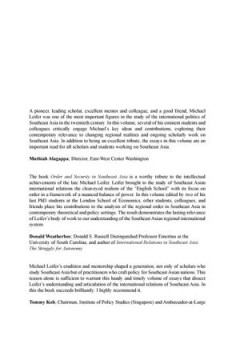
Order and Security in Southeast Asia
Michael Leifer, who died in 2001, was one of the leading scholars of Southeast Asian international relations. He was hugely influential through his extensive writings and his contacts with people in government and business in the region. In this book, many of Leifer’s students, colleagues and friends come together to explore the key themes of his work on Southeast Asia, including the notion o…
- Edition
- -
- ISBN/ISSN
- 9780203014813
- Collation
- -
- Series Title
- -
- Call Number
- 300
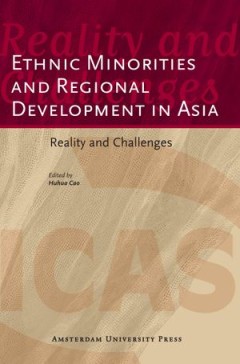
Ethnic Minorities and Regional Development in Asia
The development experience in the world over the last century has shown that economic growth cannot be sustained without taking into consideration the social and political development of vulnerable populations, including greater recognition of minority rights. Within this context, the objective of this book is initially to support the interdisciplinary discussion that aims to join studies that …
- Edition
- -
- ISBN/ISSN
- 9789089640918
- Collation
- -
- Series Title
- -
- Call Number
- -
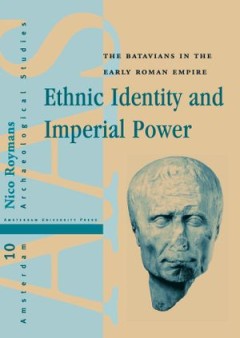
Ethnic Identity and Imperial Power The Batavians in the Early Roman Empire
This study explores the theme of Batavian ethnicity and ethnogenesis in the context of the Early Roman Empire, starting with the current view of ethnicity as a culturally determined, subjective construct shaped through interaction with an ethnic 'other'. The study analyses literary, epigraphic and archaeological sources relating to the Batavian image and self-image against the background of the…
- Edition
- -
- ISBN/ISSN
- 9789053567050
- Collation
- -
- Series Title
- -
- Call Number
- -
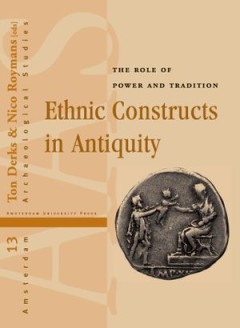
Ethnic Constructs in Antiquity The Role of Power and Tradition
This volume explores the theme of ethnicity and ethnogenesis in societies of the ancient world. Its starting point is the current view in the social and historical sciences of ethnicity as a subjective construct that is shaped through interaction with an ethnic 'other'. The 13 essays collected in this volume are based on the analysis of historical, epigraphic and archaeological source material …
- Edition
- -
- ISBN/ISSN
- 9789089640789
- Collation
- -
- Series Title
- -
- Call Number
- -
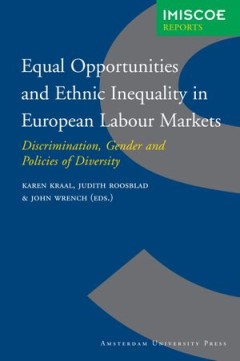
Equal Opportunities and Ethnic Inequality in European Labour Markets
The need to analyse labour market mechanisms in post-industrial Western societies is urgent. Despite laws and policy measures being developed at the European, national and local levels, job-seeking immigrants and ethnic minorities still suffer unequal access and ethnic discrimination. This volume endeavours to understand why. Four chapters dealing with discrimination, gender, equity policies an…
- Edition
- -
- ISBN/ISSN
- 9789089641267
- Collation
- -
- Series Title
- -
- Call Number
- -
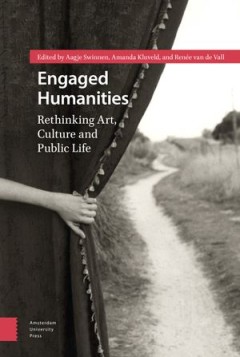
Engaged Humanities Rethinking Art, Culture, and Public Life
What is the role of the humanities at the start of 21st century? In the last few decades, the various disciplines of the humanities (history, linguistics, literary studies, art history, media studies) have encountered a broad range of challenges, related to the future of print culture, to shifts in funding strategies, and to the changing contours of culture and society. Several publications hav…
- Edition
- -
- ISBN/ISSN
- 9789048550401
- Collation
- -
- Series Title
- -
- Call Number
- -

The Emotional Life of Contemporary Public Memorials Towards a Theory of Temp…
From the commemoration of September 11 to the Holocaust memorial in Berlin, recent decades have witnessed a substantial increase in the number of new public memorials built in both Europe and the United States. This volume considers the contemporary explosion of public commemoration in terms of changed cultural and social practices of mourning, memory, and public feeling. Positing memorials as …
- Edition
- -
- ISBN/ISSN
- 9789089640185
- Collation
- -
- Series Title
- -
- Call Number
- -
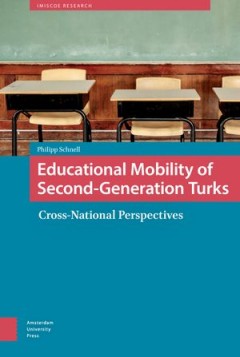
Educational mobility of Second-Generation Turks Cross-national Perspectives
This volume investigates educational inequalities among children of Turkish immigrants in Austria, France, and Sweden. One of the largest immigrant groups in these countries, Turks nonetheless face discrimination and limited opportunities, and this study shows how those problems play out in education. One of its key findings is that systems that provide more favorable institutional arrangements…
- Edition
- -
- ISBN/ISSN
- 9789048523184
- Collation
- -
- Series Title
- -
- Call Number
- -

Educational Reception in Rotterdam and Barcelona Policies, Practices and Gaps
The reception of newcomer youngsters by schools constitutes a policy issue in Europe already for decades. This book deals with how practitioners in Rotterdam and Barcelona apply existing policies for the reception of immigrant students, the dilemmas they face and the strategies they design as a response. Using a combination of discursive, organizational, and ethnographic research techniques, th…
- Edition
- -
- ISBN/ISSN
- 9789048523108
- Collation
- -
- Series Title
- -
- Call Number
- -

Educational mobility of Second-Generation Turks Cross-national Perspectives
This volume investigates educational inequalities among children of Turkish immigrants in Austria, France, and Sweden. One of the largest immigrant groups in these countries, Turks nonetheless face discrimination and limited opportunities, and this study shows how those problems play out in education. One of its key findings is that systems that provide more favorable institutional arrangements…
- Edition
- -
- ISBN/ISSN
- 9789048523184
- Collation
- -
- Series Title
- -
- Call Number
- -
 Computer Science, Information & General Works
Computer Science, Information & General Works  Philosophy & Psychology
Philosophy & Psychology  Religion
Religion  Social Sciences
Social Sciences  Language
Language  Pure Science
Pure Science  Applied Sciences
Applied Sciences  Art & Recreation
Art & Recreation  Literature
Literature  History & Geography
History & Geography